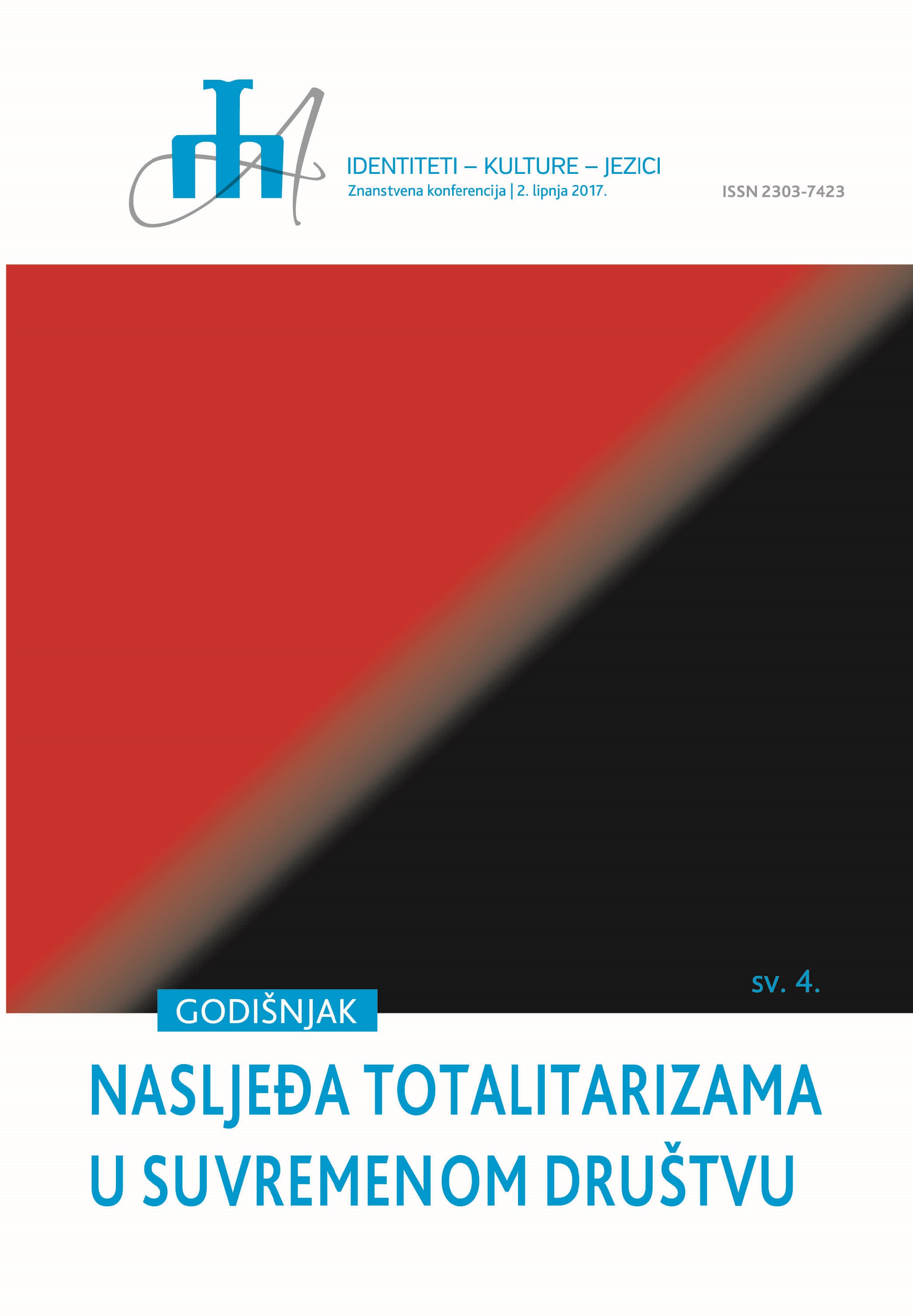Ustavni odgovor na naslijeđe totalitarizma u Republici Hrvatskoj
Constitutional response to the inheritance of totalitarianism in the Republic of Croatia
Author(s): Mato ArlovićSubject(s): Politics / Political Sciences, Constitutional Law, Human Rights and Humanitarian Law, Governance
Published by: Filozofski fakultet Sveučilišta u Mostaru
Keywords: totalitarianism; democracy; democratic constitutional state; rule of law; constitutionalism; human rights and freedoms; highest values of constitutional order;
Summary/Abstract: Totalitarian governmental systems, in the way in which the political, juristic and philosophical theory apprehends and defines them, have originated in and have marked the 20th century. At their foundation, they are determined by a complete (total) reign of the regime over the everyday life of citizens, controlling their actions. It can actually be said that totalitarianism as a model of political rule “demands an absolute leadership over those ruled upon: over their political existence, over their everyday world and over the consciousness of every individual” . Totalitarian systems of governance as “a total rule of the regime” , regardless of their ideological differences is the basic characteristic of the right- and left-wing totalitarianisms. This paper will shortly examine them and their differences. Primarily, because they both were present on the territory of the Republic of Croatia as governmental system during the 20th century. The antipode, i.e. the negation of totalitarianism is the model of governance which rests upon the system of governance in constitutional democratic states, upon the rule of law, and upon the guaranteed human and minority rights and freedoms. In this way, the constitutional democratic models of government in social and state communities are not only the constitutional and legal answer to the totalitarian systems of governance, but in its essence, they deny it and completely abolish it in places it used to exist. Clearly, this is done if by constitutionalisation the democratic state of human rights and freedoms, separation of powers (on a vertical and horizontal level), rule of law, democratic (multiparty) elections, right to political participation, judicial and constitutional control of government and constitutionality and legality, equality before the law and equal implementation of law from the authorities to equivalent cases, etc. is achieved. It is good to add that this constitutionalisation implies a complete – formal and functional achievement. The Republic of Croatia has established a system of ideals, values, goals and principles by its Constitution and the judicial and constitutional order that derived from it, and therefore successfully reacted to the inheritance of totalitarianism on the whole, and in such a way that in a formally legal sense she did not only break all bonds with it but has completely abolished it. Clearly, it needs to be discussed to what extent has her constitutional progress been made in a functional sense by which Croatia has been constitutionalised as a democratic state of rule of law and human and minority rights and freedoms. These questions will be discussed in this paper, of course to such an extent which will be allowed according to its character, purpose and goal.
Journal: Identiteti - Kulture - Jezici
- Issue Year: 4/2018
- Issue No: 1
- Page Range: 31-53
- Page Count: 23
- Language: Croatian

